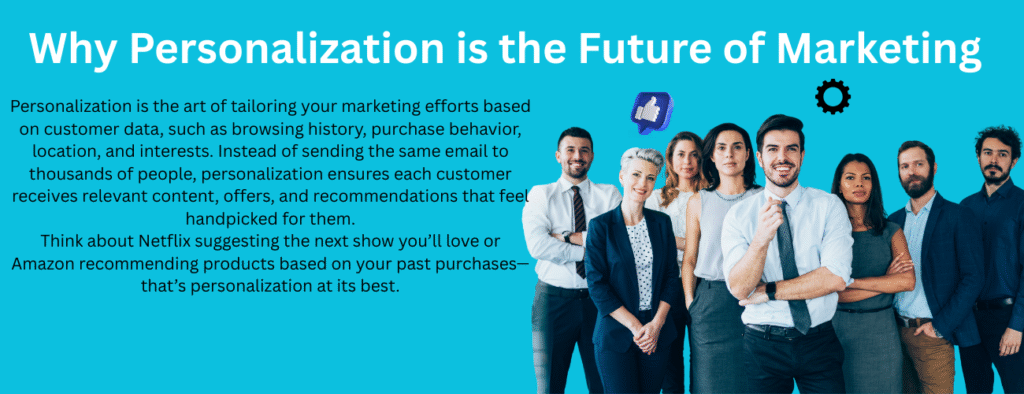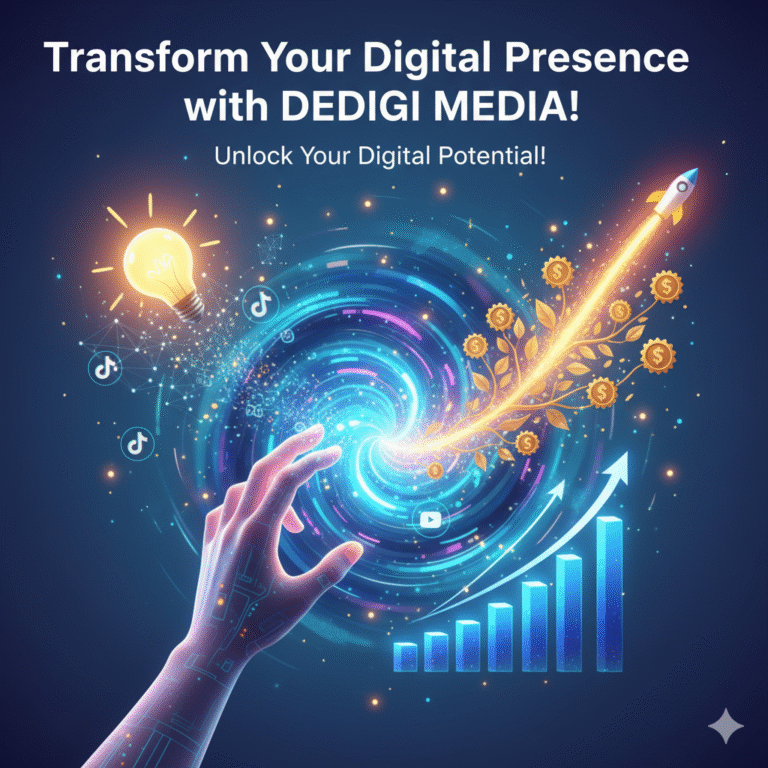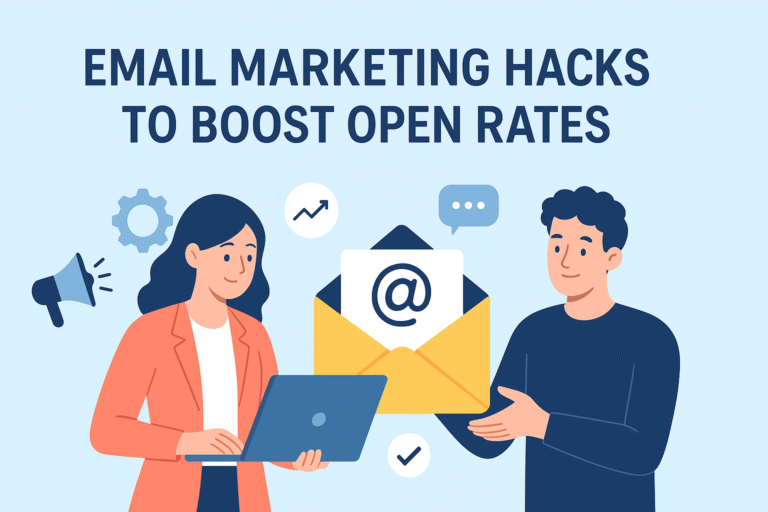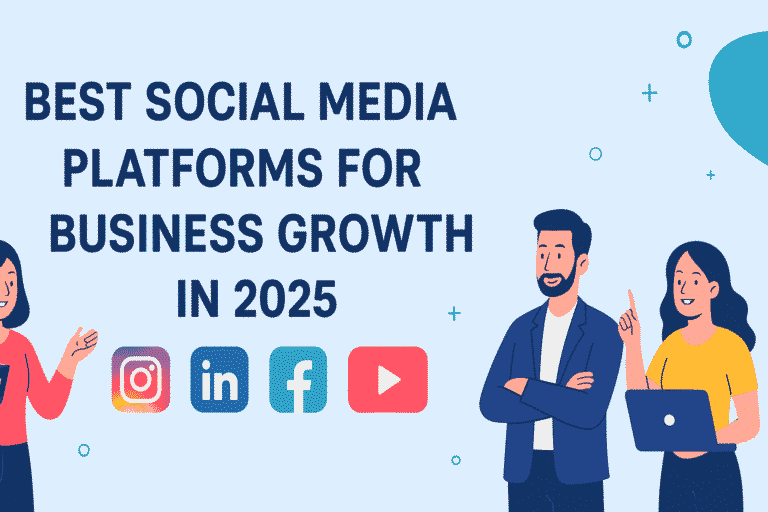Why Personalization is the Future of Marketing

Why Personalization is the Future of Marketing
In our fast-moving digital age, customers no longer desire generic marketing messages that appeal to all yet resonate with none. They want brands to know their needs, preferences, and behaviors—and this is where personalization comes in.
What is Personalization in Marketing?
Personalization is the art of tailoring your marketing efforts based on customer data, such as browsing history, purchase behavior, location, and interests. Instead of sending the same email to thousands of people, personalization ensures each customer receives relevant content, offers, and recommendations that feel handpicked for them.
- Think about Netflix suggesting the next show you’ll love or Amazon recommending products based on your past purchases—that’s personalization at its best.
Why Personalization is Important Future
- Improved Customer Experience – When individuals feel known, they bond with your brand.
- Increased Engagement – Personalized marketing emails and advertisements are clicked more because they speak to the person.
- Increases Sales & Conversions – Suggesting the correct product at the correct time has the potential to drive browsers to buyers.
- Deeper Brand Loyalty – Customers will remain with brands that address them as people, not numbers.
The Future is Human-Centric Marketing
The marketing future isn’t about selling more—it’s about relating. AI-driven platforms, big data, and predictive analytics are enabling the creation of experiences that become personal in every sense. Rather than asking, “How can we sell more?” brands are now asking, “How can we serve better?”
This transition implies that marketing will be more human, empathetic, and value-led. Customers will not only buy from brands that they recognize; they’ll buy from brands they know they can rely on and have a connection to.
- How to Employ Personalization in Your Strategy
- Email Marketing: Segment audiences and send targeted messages.
- Website Experience: Display product recommendations and dynamic content.
- Social Media Ads: Target by behavior and interests.
- Customer Support: Leverage chatbots and AI to provide real-time, personalized solutions.
Final Thoughts
Personalization is not a marketing fad—it’s what’s next. Companies that adopt it will create richer connections, strengthen loyalty, and differentiate themselves in a noisy market. Simply put, personalization turns marketing from selling to serving people better.
So if you would like your brand to flourish, begin contemplating less about “mass marketing” and more about human marketing. Because ultimately, people don’t merely purchase products—they purchase encounters that feel individual.





